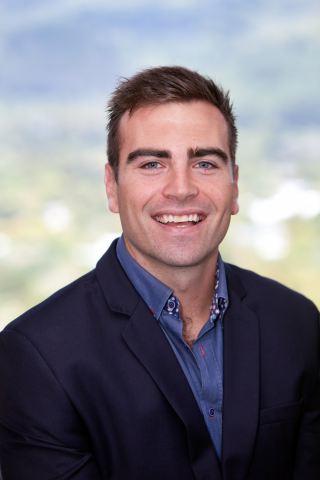Post SA Investment Conference, AfricArena, Wesgro and Silicon Cape Presents Deep-Dive into Tech Investment in Africa - African tech startups represents less than $50c per capita
AfricArena, Silicon Cape and Wesgro host expert discussion and release research indicating funding raised by African startups to increase by 100%+, exceeding $1 billion for the first time.
Tuesday, 30 October, Cape Town – In the wake of the SA Investment Conference that took place last week, AfricArena, Wesgro and Silicon Cape hosted a press conference at the InvestSA One Stop Shop in Cape Town, making public new partnerships for the conference and discussing the role conferences and accelerators like AfricArena play in attracting investment to the continent.
Partech Ventures’ latest annual funding report shows that venture capital funding in 2017 reached $560 million, recording 53% year on year growth. South Africa, Kenya and Nigeria dominate with 6% of total funding. Francophone Africa is accelerating with 14% of the deal transactions and financial inclusion (off-grid tech, fintech and insuretech) representing 45% of deals.
The track record shows the trend is that African tech entrepreneurs are raising more and more funding. Yet, the amount of investment going to African tech startups represents less than $50c per capita whilst in Europe the investment is $50 per capita in the USA $150. Currently, less than 1% of global tech investment is into Africa whereas on the global scene, in 2017 the USA attracted $74 billion, Asia $71 billion and Europe nearly $18 billion.
“If we are to create the next generation of successful entrepreneurs competing at a global scale – clearly the challenge remains as an input and output measure to increase the level of capita that African startups attract,” states Christophe Viarnaud, CEO of AfricArena and Methys. ““It is predicted that in 2050 and 2100, there will be more than 50 cities with more than one million people on the African continent, and the majority of the most highly populated cities in the world will be in Africa. This is a very important factor in terms of being a fundamental underlying trend which is going to drive increasing investment in Africa, therefore we foresee the investment in African tech startups to exceed the $10 billion annual mark in the next decade.”
Based on internal research conducted in 2018, AfricArena, Silicon Cape and Wesgro expect the funding raised by African startups to increase by 100%+, exceeding $1 billion for the first time and achieve $1 dollar per capita, positioning Africa as the fastest growing area in the world.
“Another interesting thing is the emphasis we put on taking our startups to the bigger stages outside of the continent,” adds Danai Musandu, Investment Associate, Goodwell Investments BV, “You always find more people rushing to go to Silicon Valley to go see where the big stage and the content is. But we need to have a change of perspective and a change of attitude, where people will say ‘We’re going to Africa, where the big stage of the future is’. The biggest barrier is our perspective and we need to change that perspective.”
AfricArena is a pan-African ecosystem accelerator whose mission is to help African startups access market and capital. The primary outcome measure is investment deals done around the event.
AfricArena 2018 Announcements
Over 70 start ups from over 30 countries will attend, competing in 11 open innovation challenges
In partnership with We Think Code, AfricArena will run a hackathon on a mobility challenge for the City of Cape Town
EM Lyon, a world-ranked business school, joins as academic partner and will stream AfricArena live on its Casablanca, Lyon and Singapore campuses
Over 100 investors from US, Europe, Africa will attend or follow on the live streaming of the pitch sessionsAfricArena announced partnership with Deep Tech platform ‘Hello Tomorrow’ and a Deep Tech Africa challenge that will take place on Day 2 of AfricArena.
Silicon Cape members to receive early bird special of 50% off AfricArena tickets
EM Lyon is an international business school priding themselves in “making entrepreneurs for Africa”. They capitalize on the worldwide-recognized experience and quality of their programs and offer both students and corporations content that is tailored to their context and to their problems. EM Lyon is fully in line with their signature "early maker": a school that tries, investigates and innovates far ahead of others.
Hello Tomorrow organises mentorship programs and a series of events around the world, as well as educating and consulting relevant stakeholders on emergence of deep technologies with the platform fast becoming a key reference in deeptech innovation and entrepreneurship.
Sarah Pedroza, Managing Director of Hello Tomorrow, states: “Deeptech innovation happening today knows no borders. But the opportunities and resources to catalyze these solutions are unevenly distributed. We need to give better tools to deeptech entrepreneurs in ecosystems that are booming, connecting them to a global network of industry leaders, investors and policy makers in order to bring their concepts to market. We’re excited to partner with AfricArena, joining their flagship event in one of the biggest tech hubs in Africa, which is a great opportunity to bring key stakeholders together.”
Finalists for the internationally sponsored challenges were also announced:
VINCE ENERGIES CHALLENGE – How to make energy more accessible in Africa thanks to energy efficiency solutions, energy flows optimization blockchain and/or AI - Rensource (Nigeria), BIG POT – Nigeria, Oniriq – Senegal
SAINT-GOBAIN CHALLENGE – A solution to upgrade professionals’ skills across Africa - Syafunda (South Africa), The Student Hub (South Africa), Ceed Learning (South Africa)
VIVATECH CHALLENGE – How AI can help generate a self-sustaining growth in the AgriTech industry - Agrocenta (Kenya), Homefarm (South Africa), Aerobotics (South Africa)AfricArena will take place on 15 & 16 November.
More information available at www.africarena2018.com
-- ENDS --
For more information on AfricArena or this press release, please contact:
Mika Stanvliet | This email address is being protected from spambots. You need JavaScript enabled to view it. | 081 534 6237
About AfricArena:
Celebrated as the largest tech ecosystem accelerator on the African continent, last year’s edition of AfricArena saw more than 80 startups presenting to over 100 investors with 25 countries being represented and over $2M worth of deals done. The conference serves as a platform for the continent’s best startups and innovators to showcase their world-class talent in front of an audience of both local and international investors. AfricArena is the ultimate deal-flow platform, bringing investors and startups together in one central location.
The challenges run by AfricArena are sponsored by Vinci Energies, AirFrance, Engie, Sanofi, Leroy Merlin, the City of Cape Town and RCS.
The conference is anchored and endorsed by corporate sponsors and partners La French Tech, Silicon Cape, Wesgro, SEDA, and will be covered by several media such as Techcrunch, Les Echos, Maddyness, Fast Company and many others.
Effective working capital management can save your company
By Handre Lourens, Business Rescue Manager at Hobbs Sinclair
Most financially distressed companies have the same things in common: poor working capital controls and the employment of a reactive working capital management strategy rather than a proactive approach.
Improving the company’s working capital through a proactive strategy can be a quick way to get your head above water without increasing sales or cutting cost. For companies in financial distress, that kind of improvement can be the first step to turning the company around. For healthy companies, the surplus cash flow can be reinvested in ways to create value for customers, be invested in a brand or expand your services or product range.
The process of improving working capital can also highlight improvements in operations such as supply-chain management, human resource management, procurement, sales and non-value-added cost.
The first step is to focus on your income and customers and to ask the how, who and when question. You need to understand exactly how your income is generated, who you will collect it from and when you will collect the income. Once you have established the above, you should focus on collecting all income due to you as soon as possible. This can be done by informing debtors of their balance due, following up on debtors to pay their outstanding balances, offering a discount on early settlement of their account or, as a last resort, taking legal action to recover the balance due.
The focus should be to reduce your debtors’ collection days to as few as possible, while at the same time retaining the customer relationship. The second step is to focus on your inventory levels. Having a clear understanding of the demand and supply of your product or service is a key factor. You should establish the optimum amount of inventory to sustain your level of demand while maintaining a small buffer for unforeseen circumstances.
The third step is to focus on your expenditure and, more importantly, the supply chain relationships that the company has. Contacting each supplier will allow you to understand the suppliers’ working capital needs and offer specific payment terms that are beneficial to both parties. This is an ongoing process that does take lot of time.
All this will add to reducing your total number of working capital days. That means the number of days it takes you to buy an inventory, manufacture a product, sell the product to the customer and collect your money. Getting this number of days as low as possible will ensure a healthy bank balance and a bottom-line that will put a smile on your face.
There are, however, some risks involved as well. Too little inventory can disrupt operations. Stretching supplier payment terms can leak back in the form of higher prices, if not negotiated carefully, or unwittingly send a signal of distress to the market. But management who are mindful of such pitfalls can still improve working capital by active management and focusing on the constraints.
Working capital is often under-managed simply because of lack of awareness or attention. There is also the possibility that working capital may not be tracked or published in a way that is transparent and relevant to all stakeholders. That almost always indicates an opportunity to improve. At Hobbs Sinclair, as business rescue practitioners, our first focus is on improving working capital to free up cash flow. This allows us to keep the day-to-day activities running while a long-term strategy can be developed and voted on by creditors in the best long-term interest of the company and all the stakeholders.
In conclusion, working capital is critical to a company’s operations and the financial team within each company needs to take on this responsibility and share it so that it is implemented into every activity within the company.



